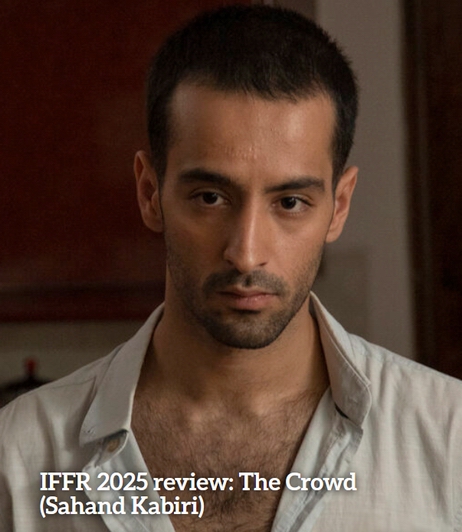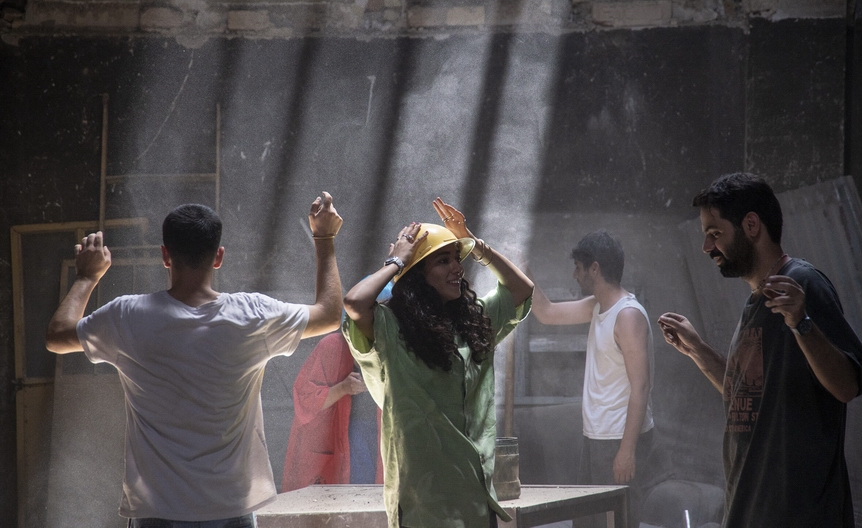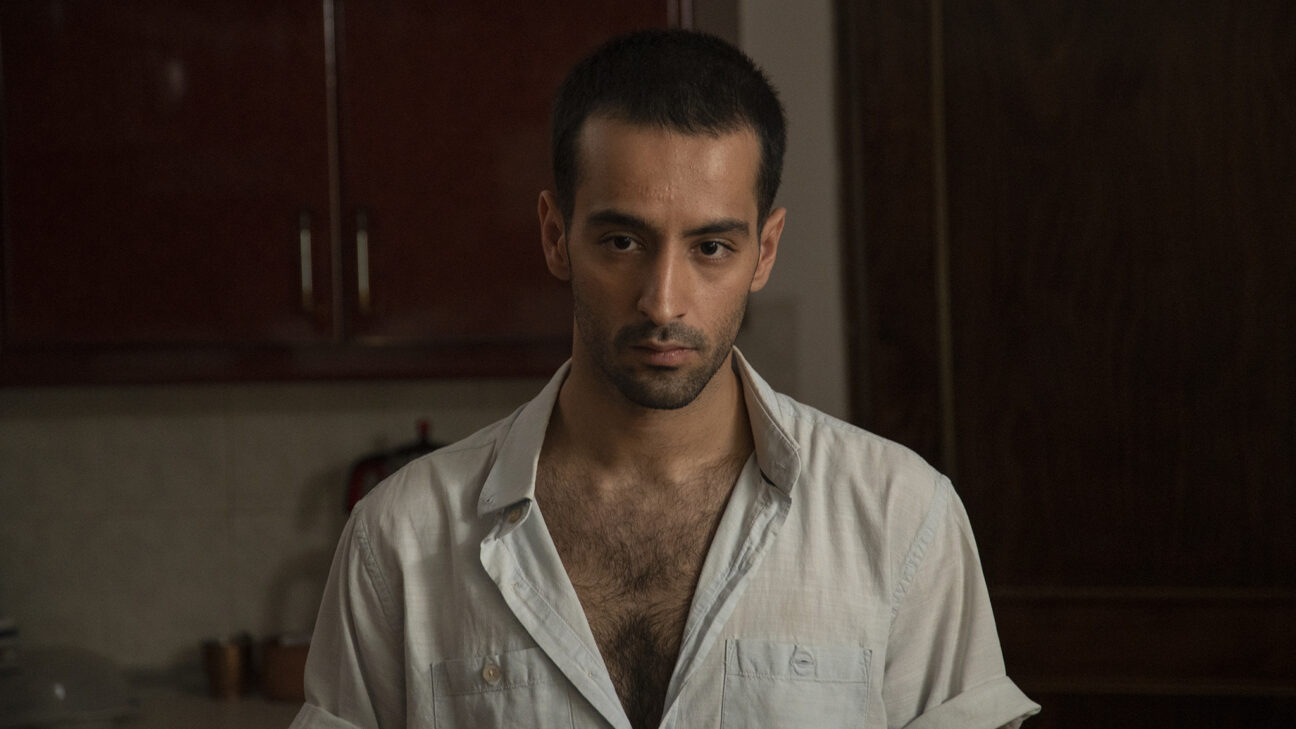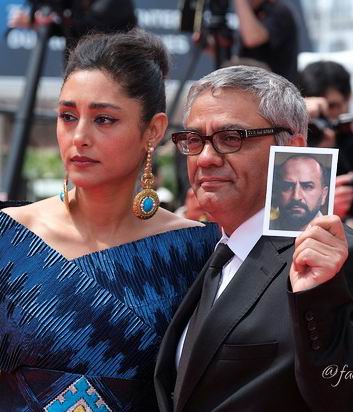|
|
| Welcome to Online Film Home! |
|---|
|
|
|
 |
IFFR 2025 review:
The Crowd (Sahand Kabiri)
By Marc van de Klashorst, ICS Film
February 3, 2025
‘A delightful, surprising portrait of modern Iran… While not overtly confrontational, the film is thoroughly political in the way it presents Tehran in its leisurely moments, including a minor queer character discussing his love life. This languid, multifaceted portrait of the city… adds to the many reasons Fotouhi’s approach feels so revitalizing.’ – Variety
“A remarkable film that is defiant and a young generation’s cry for a right to be recognized and to exist under its own terms.”
“Mirrored in the cup, we see the face of the beloved we favor.
Alas, you are unaware of the joys of the wine we savor.”
These two lines by revered 14th century poet Hafez open Sahand Kabiri’s vibrant and hopeful feature debut The Crowd, a film that aims to paint a portrait of young adult life in Tehran. These lines subtly hint at the playful and defiant attitude of its main cast.

Although bits and pieces of this underexposed part of Iranian society have shown up in recent cinema from the country, most prominently in Ali Ahmadzadeh’s Locarno winner Critical Zone, Shahab Fotouhi’s Boomerang, and last year’s Tiger entry Me, Maryam, the Children, and 26 Others by Farshad Hashemi, one cannot recollect a slice of this ‘hidden’ young life, queer and stridently anti-patriarchal, as joyful as in Kabiri’s film.
Partially inspired by personal experiences, The Crowd shows the young filmmaker’s sense of rhythm (and that’s not just the ambient techno needle drops) as well as his brazen willingness to fly in the face of the rules and regulations of Iranian censorship. Gone are the days of covert ways to circumvent these, as this generation of filmmakers brazenly shows an Iranian youth culture that defies modesty laws and other measures installed to keep them in check.
Kabiri adds flavor and color to this new movement with a portrait of a generation struggling with some of the same issues as youths in other places, as well as with some that are very particular to their circumstances.
Hamed (Keyvan Mohammadi) is living with his boyfriend Raman (Faraaz Modiri), who is preparing to leave the country to go study abroad. Their friends are planning to throw a farewell party for Raman, and Hamed, having recently inherited an old garage together with his sister Mahya (Katayoun Saleki) and conservative brother Mahmood (Mohsen Khoeiniha), can provide the perfect location. As the group of friends assembles to sweep the mess from the old and abandoned place to get the space ready for the party, they bicker and reminisce over the death of a close friend, Tondar, lost to them mere weeks before in a terrible accident. Just as the party is about to start, Mahmood shows up to throw a wrench in their plans and put his younger brother in his place, but Hamed’s friends will not stand for this. The party must go on, for Raman, for Tondar, and for their way of life.

The Crowd‘s premise on paper is more suited for a shorter film, but Kabiri successfully manages to stretch this to a (admittedly still short) 70-minute runtime through the power of conversation and creating compelling characters, no doubt because he felt so close to them in his own experience. These conversations are about everything and nothing, about deeply affecting family issues in a scene between Hamed and his sister, or about simple banter between friends as they argue about who should be invited or not. Through these conversations Kabiri manages to raise topics like the taboo on same-sex relationships, the dangers of home-brews in a country where alcohol is illegal, or the illegality of gatherings between the sexes, and he does so in an organic, believable way.
In the latter half of the film he punctuates the direct effect these issues can have when he has two characters, close friend Shahin (Baset Rezaei) and loose acquaintance Javid (Javid Ghaem Maghami), reminisce about their deceased friend. Both monologues leave a powerful impression through Kabiri’s use of a slow zoom on the characters, intensifying the emotions of their stories. These are the sobering moments in an otherwise vibrant film, as if to say that overcoming adversity in a strict culture like Iran is not without its misery.
There are other moments in which the director pulls back from the back-and-forths between the characters, and in these silent sequences the film tends to go in an opposite, more poetic direction. Early on Hamed, alone in the apartment he shares with Raman, performs an almost mournful pole dance set against a traditional and haunting song, juxtaposed near the end by a dreamy scene of several characters in ecstasy over a pounding techno beat. Within the constraint of the short runtime Kabiri manages to cram a lot of ideas and emotions into The Crowd, but it never feels overcrowded because of the simplicity of its narrative being fully in function of exploring these ideas and emotions.
It’s a remarkable film that is defiant and a young generation’s cry for a right to be recognized and to exist under its own terms.
* * *
With The Crowd, Sahand Kabiri brings his debut feature to IFFR. Shot over the course of 12 days with a crisp but playful visual style, the film shows a portrait of middle-class, digital-aged Gen-Z/Millennials in Tehran and beset with affectionate platonic love. While acting as a breath of fresh air, The Crowd has just as much a sense of rebellion as maestros of Iranian cinema, made afresh for a younger generation. Dappled with collage elements and framed with Iran’s present-day atmosphere, The Crowd is a touching tribute to those leaving and those who have left. – Olivia Popp
‘A delightful, surprising portrait of modern Iran… While not overtly confrontational, the film is thoroughly political in the way it presents Tehran in its leisurely moments, including a minor queer character discussing his love life. This languid, multifaceted portrait of the city… adds to the many reasons Fotouhi’s approach feels so revitalizing.’ – Siddhant Adlakha, Variety

|
|
|
|

Cannes 2024 |
Choose an item to go there!
|
| |
|
|

